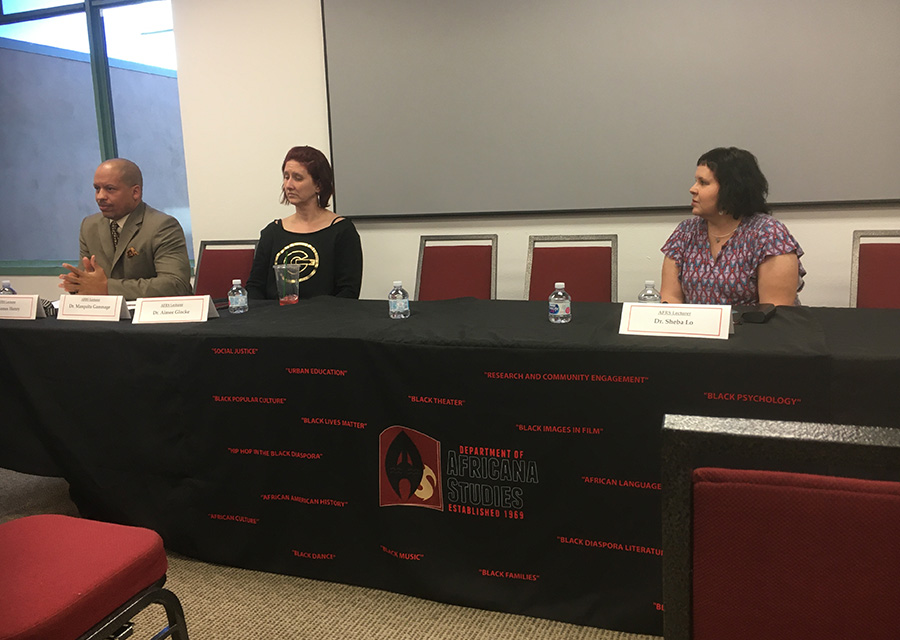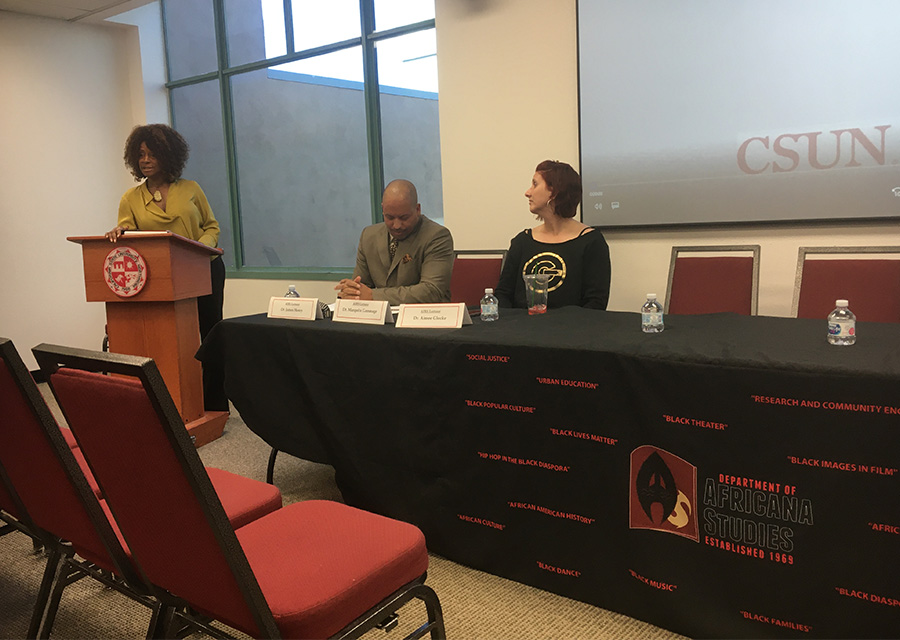Department of Africana Studies Panel Shows How Cultural Awareness Can Aid a Career
On Feb. 26, a panel of faculty and staff members in the Department of Africana Studies answered questions students might have about declaring an Africana studies major/minor.
Department Chair Theresa White, academic advisor James Henry and three full-time faculty members — Aimee Glocke, Sheba Lo and Tom Spencer-Walters — spoke on the panel, “Africana Studies: Why Haven’t YOU Declared? Getting to Know the Africana Studies Discipline,” which was part of a major/minor fair. Faculty members shared insights about the department’s offerings, their areas of expertise, community engagement and publishing opportunities, career options, and more.
Students and their family members interested in Africana studies are often most concerned about finding a career path. Lo said that a bachelor’s degree is meant to be the foundation on which someone builds their career, while Glocke spoke about how faculty and staff will tailor a student’s path to their interests — and how an Africana studies major or minor can make someone stand out in their field of interest. Former Africana studies students have made careers in the FBI, military, business, psychology and many other fields.
“[Cultural awareness] broadens your perspective in terms of making you a global citizen,” White said. “It broadens your perspective in terms of complementing whatever you already are doing, and then up-leveling that by having that cultural competency, because if you can understand someone else’s culture, if you understand your own culture, you can understand the idea of difference.”
The panel was part of a monthlong series of events in recognition of Black History Month. The Department of Africana Studies and multiple other departments and organizations on campus delivered nearly 40 events and activities in 2020.



 experience
experience